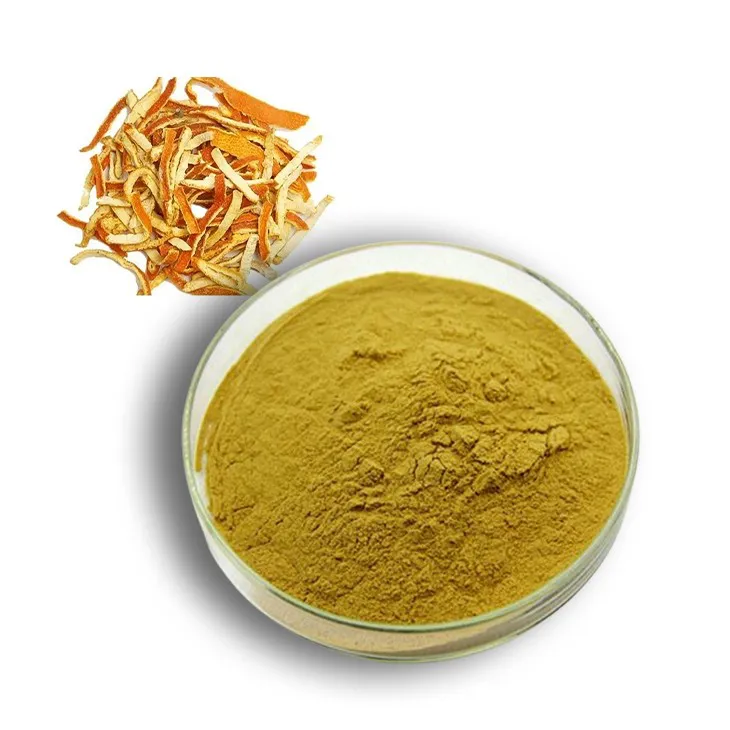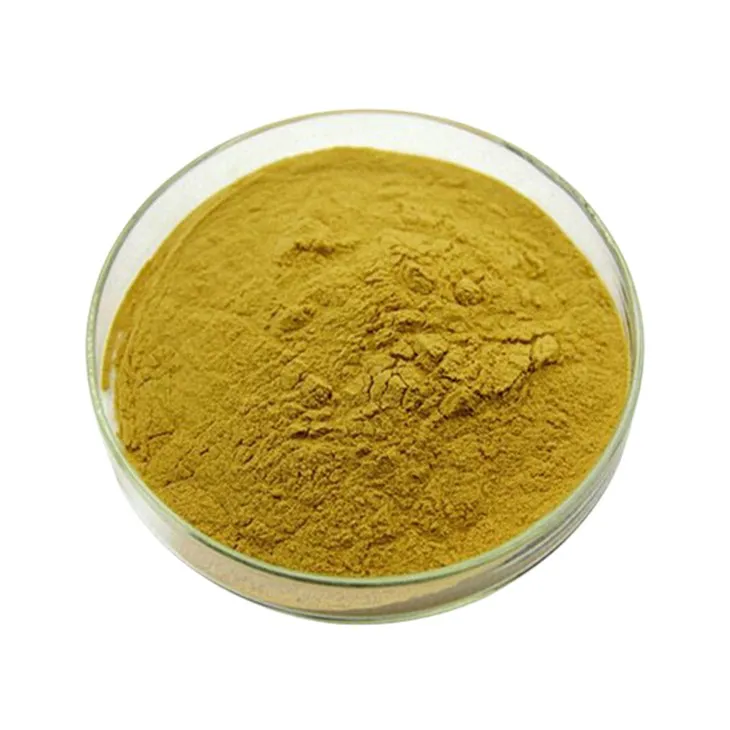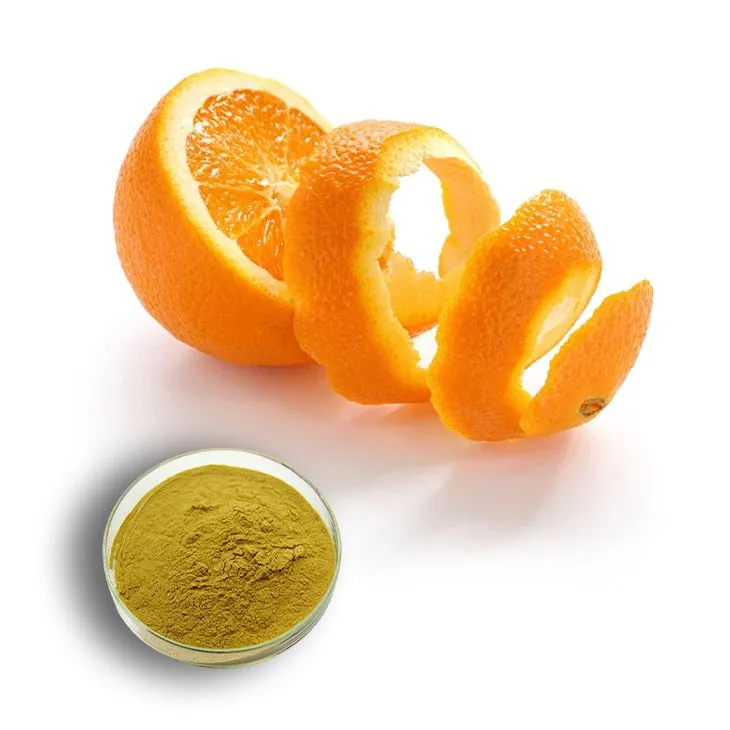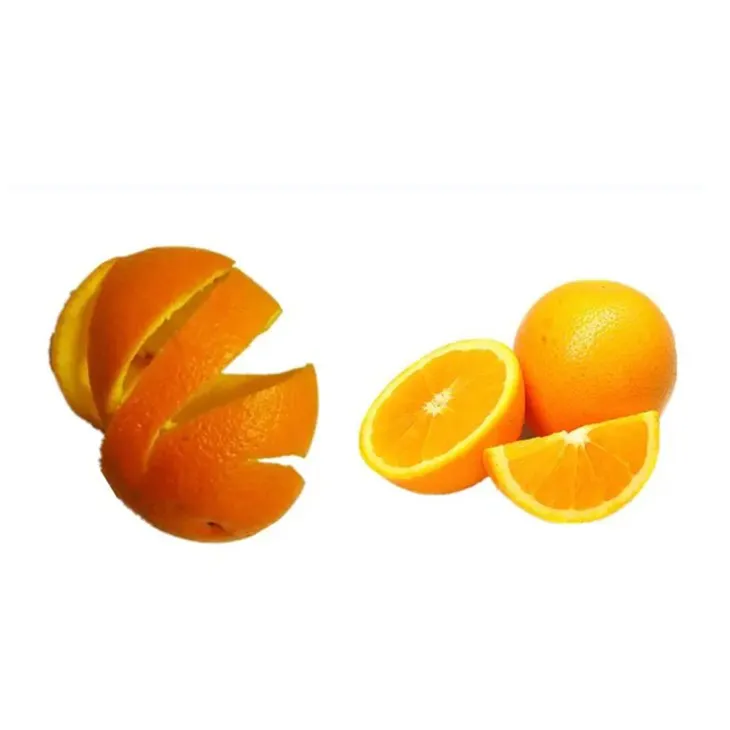- 0086-571-85302990
- sales@greenskybio.com
Hesperidin: What Are Its Benefits and How to Take It?
2024-11-12

1. Introduction to Hesperidin
Hesperidin is a flavonoid glycoside predominantly found in citrus fruits, especially in the peel and membranes. It is a natural compound that has been gaining increasing attention in the field of health and nutrition due to its potential beneficial effects on the human body. The compound is chemically composed of hesperetin (the aglycone form) and the disaccharide rutinose. Its chemical structure endows it with unique properties that are being explored in various scientific studies.

2. Health Benefits of Hesperidin
2.1. Cardiovascular Health
Blood Pressure Regulation: Hesperidin has been shown to have a positive impact on blood pressure. It may help in reducing systolic and diastolic blood pressure levels. This is thought to be due to its ability to promote the production of nitric oxide in the blood vessels. Nitric oxide causes the blood vessels to relax, leading to a decrease in blood pressure. For example, in some animal studies, rats fed with a diet containing hesperidin showed a significant reduction in blood pressure compared to the control group.
Cholesterol Management: Another important aspect of cardiovascular health is cholesterol management. Hesperidin may play a role in reducing LDL (low - density lipoprotein) cholesterol levels, often referred to as "bad" cholesterol. At the same time, it may help in increasing HDL (high - density lipoprotein) cholesterol, known as "good" cholesterol. This balance is crucial for maintaining a healthy cardiovascular system. In vitro studies have demonstrated that hesperidin can interfere with the absorption of dietary cholesterol in the intestines, thereby reducing its overall levels in the body.
2.2. Anti - Inflammatory Effects
Reducing Inflammatory Markers: Inflammation is a natural response of the body to injury or infection. However, chronic inflammation can lead to various diseases. Hesperidin has been found to have anti - inflammatory properties. It can reduce the levels of certain inflammatory markers in the body, such as C - reactive protein (CRP). In human clinical trials, participants who consumed hesperidin - rich supplements showed a decrease in CRP levels, indicating a reduction in inflammation.
Benefits for Joint Health: The anti - inflammatory effects of hesperidin can also be beneficial for joint health. It may help in alleviating the symptoms of arthritis, a condition characterized by joint inflammation. By reducing inflammation in the joints, hesperidin may improve joint mobility and reduce pain. Some studies have suggested that hesperidin can inhibit the production of inflammatory cytokines in the joints, which are molecules that contribute to the inflammatory process.
2.3. Immune System Enhancement
Boosting Immune Response: Hesperidin can enhance the immune system's ability to defend against infections. It may stimulate the production of immune cells, such as lymphocytes and macrophages. These cells play a crucial role in the body's defense mechanism by identifying and destroying foreign pathogens. In addition, hesperidin may also enhance the activity of these immune cells, making them more effective in fighting off infections. For example, in vitro studies have shown that hesperidin can increase the phagocytic activity of macrophages, which is the process by which macrophages engulf and destroy foreign particles.
Antiviral Properties: There is also evidence to suggest that hesperidin may have antiviral properties. It has been studied for its potential role in fighting against certain viruses, such as influenza viruses. Although more research is needed in this area, initial studies have shown promising results. Hesperidin may interfere with the replication of viruses within the host cells, thereby reducing the severity and duration of viral infections.
2.4. Skin Health
Antioxidant Protection: The skin is constantly exposed to environmental stressors, such as UV radiation and pollution, which can generate free radicals. Hesperidin, being an antioxidant, can neutralize these free radicals and protect the skin from oxidative damage. By reducing oxidative stress, it may help in preventing premature aging of the skin, such as the formation of wrinkles and fine lines. In vitro studies have demonstrated that hesperidin can scavenge free radicals more effectively than some other common antioxidants.
Improving Skin Elasticity: In addition to its antioxidant properties, hesperidin may also contribute to improving skin elasticity. It can stimulate the production of collagen in the skin, which is a protein that provides structure and elasticity to the skin. By increasing collagen production, hesperidin may help in reducing the sagging of the skin and maintaining its firmness. Some cosmetic products now contain hesperidin as an active ingredient for skin rejuvenation.

3. Sources of Hesperidin
3.1. Natural Sources
Citrus Fruits: As mentioned earlier, citrus fruits are the primary source of hesperidin. Oranges, lemons, grapefruits, and tangerines all contain significant amounts of hesperidin, especially in their peels. For example, orange peel contains a relatively high concentration of hesperidin. However, it is important to note that consuming large amounts of citrus peels may not be practical or pleasant due to their bitter taste.
Citrus - Based Products: Apart from the whole fruits, there are also various citrus - based products that can be a source of hesperidin. These include citrus juices, marmalades, and candied peels. However, the processing of these products may sometimes reduce the hesperidin content. For instance, during the juicing process, some of the hesperidin may be lost if the peel and membranes are removed.
3.2. Supplements
Types of Supplements: For those who may not be able to obtain sufficient hesperidin from natural sources, supplements are available. Hesperidin supplements come in different forms, such as capsules, tablets, and powders. These supplements are often standardized to contain a specific amount of hesperidin, making it easier for consumers to control their intake.
Quality Considerations: When choosing a hesperidin supplement, it is important to consider the quality. Look for products from reputable manufacturers that follow good manufacturing practices (GMP). The supplement should be pure and free from contaminants. Additionally, check the label for any additional ingredients and make sure they are suitable for your individual health needs.

4. How to Take Hesperidin
4.1. Dosage
Recommended Dosage: The appropriate dosage of hesperidin can vary depending on several factors, such as age, gender, and health condition. In general, for healthy adults, a daily dose of 500 - 1000 mg of hesperidin may be considered. However, it is always best to consult a healthcare professional before starting any new supplement regimen.
Factors Affecting Dosage: Certain health conditions may require a different dosage of hesperidin. For example, individuals with high blood pressure or high cholesterol may benefit from a higher dose under the supervision of a doctor. On the other hand, those with liver or kidney problems may need a lower dose to avoid potential adverse effects.
4.2. Timing and Frequency
Best Time to Take: There is no specific "best" time to take hesperidin. However, some people prefer to take it with meals to enhance absorption. Since hesperidin is a flavonoid, taking it with food may improve its bioavailability.
Frequency of Intake: The frequency of taking hesperidin can also vary. Some supplements may recommend taking it once a day, while others may suggest dividing the dose and taking it two or three times a day. Again, this should be determined based on individual needs and the advice of a healthcare provider.
4.3. Precautions and Side Effects
Precautions: Although hesperidin is generally considered safe, there are some precautions to keep in mind. Pregnant and breastfeeding women should consult their doctor before taking hesperidin supplements, as there is limited research on its safety during these periods. Additionally, if you are taking any medications, it is important to check for potential interactions. For example, hesperidin may interact with blood - thinning medications, so it is crucial to inform your doctor if you are taking such drugs.
Side Effects: In most cases, hesperidin does not cause significant side effects when taken at recommended doses. However, some people may experience mild gastrointestinal symptoms, such as stomach upset or diarrhea. If these symptoms occur, it is advisable to stop taking the supplement and consult a healthcare professional.

5. Conclusion
Hesperidin is a natural compound with a wide range of potential health benefits, including benefits for cardiovascular health, anti - inflammatory effects, immune system enhancement, and skin health. It can be obtained from natural sources such as citrus fruits and citrus - based products, or through supplements. When taking hesperidin, it is important to consider factors such as dosage, timing, and potential precautions. While more research is still needed to fully understand all of its effects and mechanisms, hesperidin shows great promise as a natural supplement for promoting overall health and well - being.
FAQ:
What is hesperidin?
Hesperidin is a flavonoid glycoside found in citrus fruits, especially in orange peel. It has various beneficial properties for the human body.
How does hesperidin enhance the immune system?
It helps the immune system by promoting certain cellular activities that are involved in the body's defense against pathogens. It can stimulate the production and function of immune cells, enabling the body to better recognize and fight off infections.
What are the skin - related benefits of hesperidin?
As an antioxidant, hesperidin can neutralize free radicals in the skin. These free radicals can cause damage to skin cells and lead to signs of aging such as wrinkles and dull skin. By reducing this oxidative stress, hesperidin may help maintain a more youthful appearance of the skin.
Are there any risks associated with taking hesperidin supplements?
When taken in appropriate amounts, hesperidin is generally considered safe. However, some people may experience mild side effects such as digestive discomfort. Also, if a person has certain medical conditions or is taking other medications, it is important to consult a doctor before starting hesperidin supplements, as there could be potential interactions.
Can I get enough hesperidin just from eating oranges?
While oranges are a source of hesperidin, it may be difficult to obtain a very high amount solely from eating oranges. Orange peel contains a relatively higher concentration of hesperidin, but most people do not consume large amounts of orange peel. However, consuming oranges as part of a balanced diet can contribute to your overall intake of hesperidin.
Related literature
- The Health - Promoting Properties of Hesperidin: A Review of the Current Evidence"
- "Hesperidin: From Citrus Fruits to Functional Food Ingredient"
- "Role of Hesperidin in Skin Health and Aging"
- ▶ Hesperidin
- ▶ Citrus Bioflavonoids
- ▶ Plant Extract
- ▶ lycopene
- ▶ Diosmin
- ▶ Grape seed extract
- ▶ Sea buckthorn Juice Powder
- ▶ Fruit Juice Powder
- ▶ Hops Extract
- ▶ Artichoke Extract
- ▶ Mushroom extract
- ▶ Astaxanthin
- ▶ Green Tea Extract
- ▶ Curcumin
- ▶ Horse Chestnut Extract
- ▶ Other Product
- ▶ Boswellia Serrata Extract
- ▶ Resveratrol
- ▶ Marigold Extract
- ▶ Grape Leaf Extract
- ▶ New Product
- ▶ Aminolevulinic acid
- ▶ Cranberry Extract
- ▶ Red Yeast Rice
- ▶ Red Wine Extract
-
Dandelion Root Extract
2024-11-12
-
Yam Extract
2024-11-12
-
Yohimbine Bark Extract
2024-11-12
-
Grapefruit Seed Extract Powder
2024-11-12
-
Passionflower Extract
2024-11-12
-
Cassia Seed Extract
2024-11-12
-
Coconut Water Powder
2024-11-12
-
Eyebright Extract
2024-11-12
-
Alisma Extract
2024-11-12
-
Alfalfa Meal
2024-11-12





















